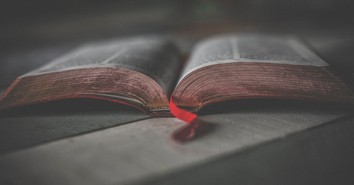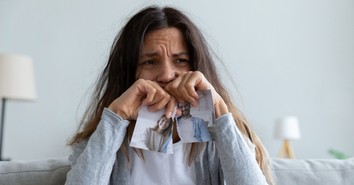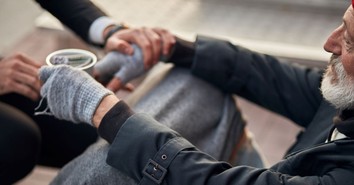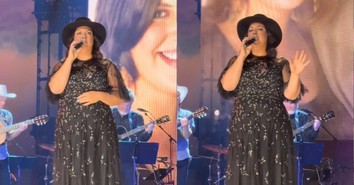What We Know about Gunmen Who Carry Out Mass School Shootings
Amerie Jo Garza was a fourth-grader at Robb Elementary School in Uvalde, Texas. According to her grandmother, Berlinda Irene Arreola, the ten-year-old was sitting in her classroom when a gunman came in. Arreola said, “The gunman went in and he told the children, ‘You’re going to die.’ And she had her phone and she called 911. And instead of grabbing it and breaking it or taking it from her, he shot her.”
On the morning of the shooting, Garza had just received an award for the elementary school’s honor roll, her grandmother said. Arreola added, “My granddaughter was shot and killed for trying to call 911, she died a hero trying to get help for her and her fellow classmates.”
There have been more than 210 mass shootings in the US so far this year. When children are murdered, our shock, outrage, and grief are especially deep. Reading about the Uvalde victims and seeing their pictures is heartbreaking. It is impossible not to want to do something to stop the carnage.
My purpose today is not to engage in a debate over gun control laws or partisan politics. Rather, I’m thinking about something radio host Carmen LaBerge said when Dr. Mark Turman and I recorded a podcast with her yesterday. Carmen is one of the most brilliant and insightful cultural commentators I know; I am honored to be on her radio program regularly and recommend her to you with great gratitude.
As we discussed the Uvalde tragedy, she noted that she was thinking about the grandmother who had been trying to help the eighteen-year-old who committed this horrendous atrocity. What could have been done to help her?
I’ll ask a similar question: What can you and I do today to help someone who is trying to help someone who could otherwise be the perpetrator of the next shooting?
"The key to stopping these tragedies"
Two criminologists who study the life histories of public mass shooters in the US published an insightful article in Conversation titled “What we know about mass school shootings in the US—and the gunmen who carry them out.” The authors built a database of thirteen such shootings since 1966. Their research shows:
- Every shooting was carried out by men or boys.
- Only two were carried out by two gunmen; the others were perpetrated by a lone gunman.
- Twelve of the fourteen school shooters in the database prior to the Uvalde attack were either current or former students of the school.
- Based on dozens of interviews with incarcerated perpetrators of mass shootings, the criminologists note that for most perpetrators, the mass shooting event was intended to be a final act; the majority of school mass shooters die in the attack.
- School shooters tend to preempt their attacks by leaving messages, posts, or video warnings of their intent.
The criminologists conclude: “Some perpetrators are seeking fame and notoriety. However, most school shooters are motivated by a generalized anger. Their path to violence involves self-hate and despair turned outward at the world, and our research finds they often communicate their intent to do harm in advance as a final, desperate cry for help.”
As a result, “The key to stopping these tragedies is for society to be alert to these warning signs and act on them immediately.”
"I think he needed mental help"
As of this morning, what we know of the Uvalde shooter matches the profile the criminologists outlined.
About thirty minutes before Tuesday’s attack, the gunman made three social media posts: that he was going to shoot his grandmother, then that he had shot her, and finally that he was going to shoot up an elementary school.
His grandmother reportedly contacted police after she was shot and ran to a neighbor’s house for help. She was airlifted to a San Antonio hospital, where she remains at this writing.
Acquaintances said the gunman was a high school senior who frequently missed school and struggled to get along with classmates. Other students made fun of his clothes and made crude references to his mother and sister. He and his mother argued often; he reportedly left his mother’s home two months ago to live with his grandmother.
Friends and relatives added that he was bullied over a childhood speech impediment and had lashed out violently against peers and strangers recently and over the years. He had fistfights with peers in middle school and junior high.
One former friend said, “I think he needed mental help. And more closure with his family. And love.”
Where "we can listen to our deepest longings"
It is plausible that you know someone who fits the profile of a mass shooter or that you know someone who is trying to help such a person. If so, now is the time to act. Now is the time to intercede for them, asking God for his intervention, healing, and help. Now is the time to alert professionals who can help and to do what you can to offer your support and encouragement.
If no one comes to mind, pray for those he is calling into such ministry and help them through your church and community support systems.
The first Christians formed such a strong social bond that “they had everything in common” and “there was not a needy person among them” (Acts 4:32, Acts 4:34). Following the example of Jesus, they met felt needs to meet spiritual needs (Acts 5:12-16), earning the right to share God’s word by demonstrating God’s love.
Henri Nouwen observed, “The community of faith offers the protective boundaries within which we can listen to our deepest longings, not to indulge in morbid introspection, but to find our God to whom they point. In the community of faith we can listen to our feelings of loneliness, to our desires for an embrace or a kiss, to our sexual urges, to our cravings for sympathy, compassion, or just a good word; also to our search for insight and to our hope for companionship and friendship.
“In the community of faith we can listen to all these longings and find the courage, not to avoid them or cover them up, but to confront them in order to discern God’s presence in their midst.”
How will you extend this community to a hurting soul today?
Publication date: May 26, 2022
Photo courtesy: ©Kenny Luo/Unsplash
Jim Denison, PhD, is a cultural theologian and the founder and CEO of Denison Ministries. Denison Ministries includes DenisonForum.org, First15.org, ChristianParenting.org, and FoundationsWithJanet.org. Jim speaks biblically into significant cultural issues at Denison Forum. He is the chief author of The Daily Article and has written more than 30 books, including The Coming Tsunami, the Biblical Insight to Tough Questions series, and The Fifth Great Awakening.
The views expressed in this commentary do not necessarily reflect those of CrosswalkHeadlines.
For more from the Denison Forum, please visit www.denisonforum.org.
The Daily Article Podcast is Here!







